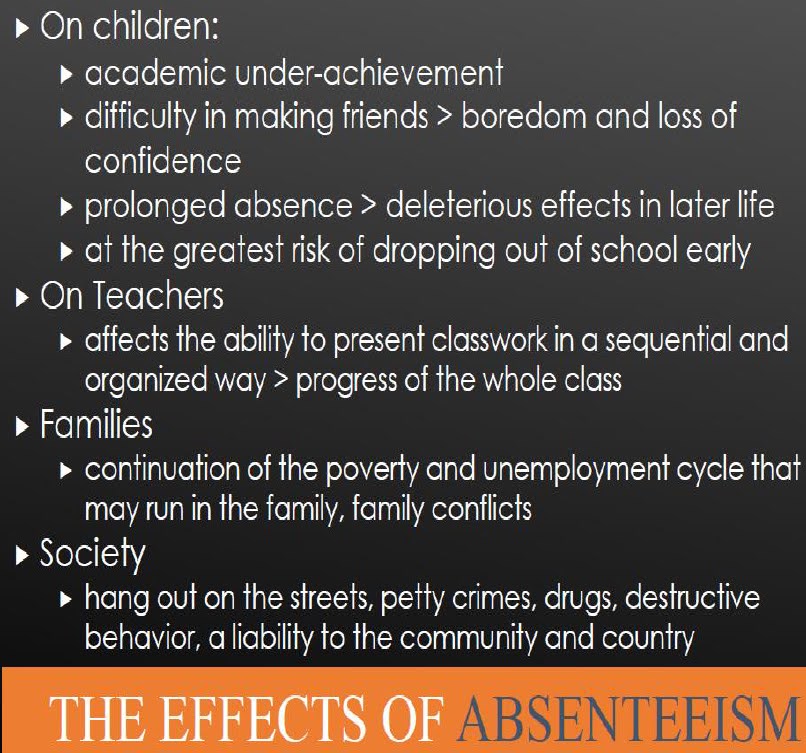Student Absenteeism
Student
Absenteeism: Understanding the Reasons and its Impact
Absenteeism refers to the
practice of frequently missing school or college without a valid reason. The
issue of student absenteeism is a growing concern for educators and
policymakers around the world, as it has a profound impact on students’
academic and social development. In this article, we will explore the reasons
for student absenteeism and its impact on students and society as a whole.
Psychological Reasons
One of the main reasons for
student absenteeism is psychological. Students with low self-esteem and a lack
of motivation are more likely to miss school. This can be due to boredom and a
lack of understanding of the material being taught, leading to a lack of
interest and engagement.
Educational Reasons
Another reason for student
absenteeism is educational. This can include a lack of awareness among parents
about the importance of education and its impact on learning outcomes. In some
cases, students may feel that they are not receiving the support they need to
succeed in school, leading to feelings of frustration and a desire to skip
class.
Social Reasons
Student absenteeism can also
be a result of social factors. This can include a lack of support from family
and community, health-related issues, corporal punishment, and the need to take
care of young siblings while parents are busy earning a living. Additionally,
there are often cultural and economic factors at play, such as migration to
villages for the harvesting season, neglecting education for girls, and
transportation problems.
Impact on Students and Society
The impact of student
absenteeism is far-reaching and affects both individual students and society as
a whole. Students who miss school frequently are more likely to fall behind in
their studies, have difficulty catching up, and are more likely to drop out of
school. This, in turn, can lead to a range of negative outcomes, including low
academic achievement, reduced opportunities for higher education and career
advancement, and increased poverty and unemployment.
In conclusion, student absenteeism
is a complex issue with multiple causes, and it is important for educators and
policymakers to understand the root causes in order to develop effective
solutions. By addressing the psychological, educational, and social factors
that contribute to absenteeism, we can help to ensure that students have the
support and resources they need to succeed in school and in life.

























